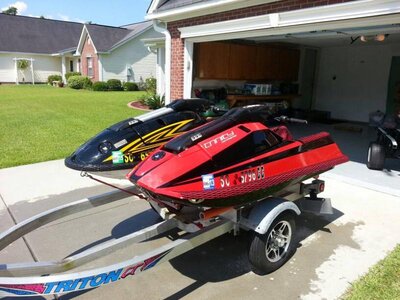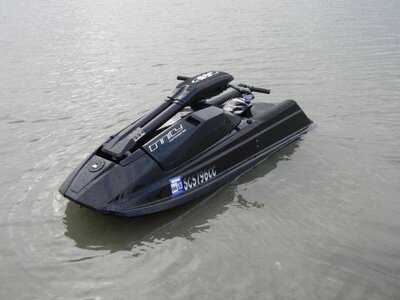BOATS VS. BARE HULLS
A bare hull is not a boat:
- A bare hull manufacturer has no way of knowing the eventual weight of the finished boat (necessary for determining safe loading information and any required volume of flotation material).
- A bare hull manufacturer has no way of knowing whether the finished boat will be powered by an outboard or an inboard and whether the fuel used will be gasoline or diesel.
- The bare hull manufacturer does not install navigation lights.
- If the finished boat is later recalled for failure to comply with an applicable Coast Guard safety standard or for a defect which creates a substantial risk of personal injury to the public, the bare hull manufacturer should not be legally responsible for defect notification and correction (unless, of course, such a defect involved complete hull failure).
Bare hull manufacturers are not boat manufacturers.
There are no Coast Guard safety standards or regulations which apply to a bare hull. Therefore, a bare hull manufacturer should not:
(1) affix a HIN, because the Manufacturer Identification Code in an HIN affixed to a boat identifies the entity that is legally responsible for construction of the entire boat -- not just the hull;
(2) affix a certification label;
(3) affix a U.S. Coast Guard Maximum Capacities label; or
(4) install flotation.
The Flotation Standard is predicated on the assumption that a manufacturer has performed certain tests in accordance with the Safe Loading Standard. Since these tests are not performed on bare hulls, then logically, there is no regulation requiring a bare hull manufacturer to install flotation material.
Instead, the individual or company that buys a bare hull is subject to the regulations. The individual who buys a bare hull to complete for his or her own use would obtain a Hull Identification Number from the State where he or she resides.
A company engaged in the business of assembling a bare hull and an engine package would be the one that should apply for a MIC, assign the Hull Identification Number and, if necessary, build the boat to comply with applicable Coast Guard safety standards and regulations.
The Recreational Boating Product Assurance Division recognizes that there are boat manufacturers with Manufacturer Identification Codes who manufacture both finished boats and bare hulls. The finished boats must be built to comply with the regulations; however, the bare hulls they sell for completion by individuals or other companies should be free of HINs or other compliance labels.


